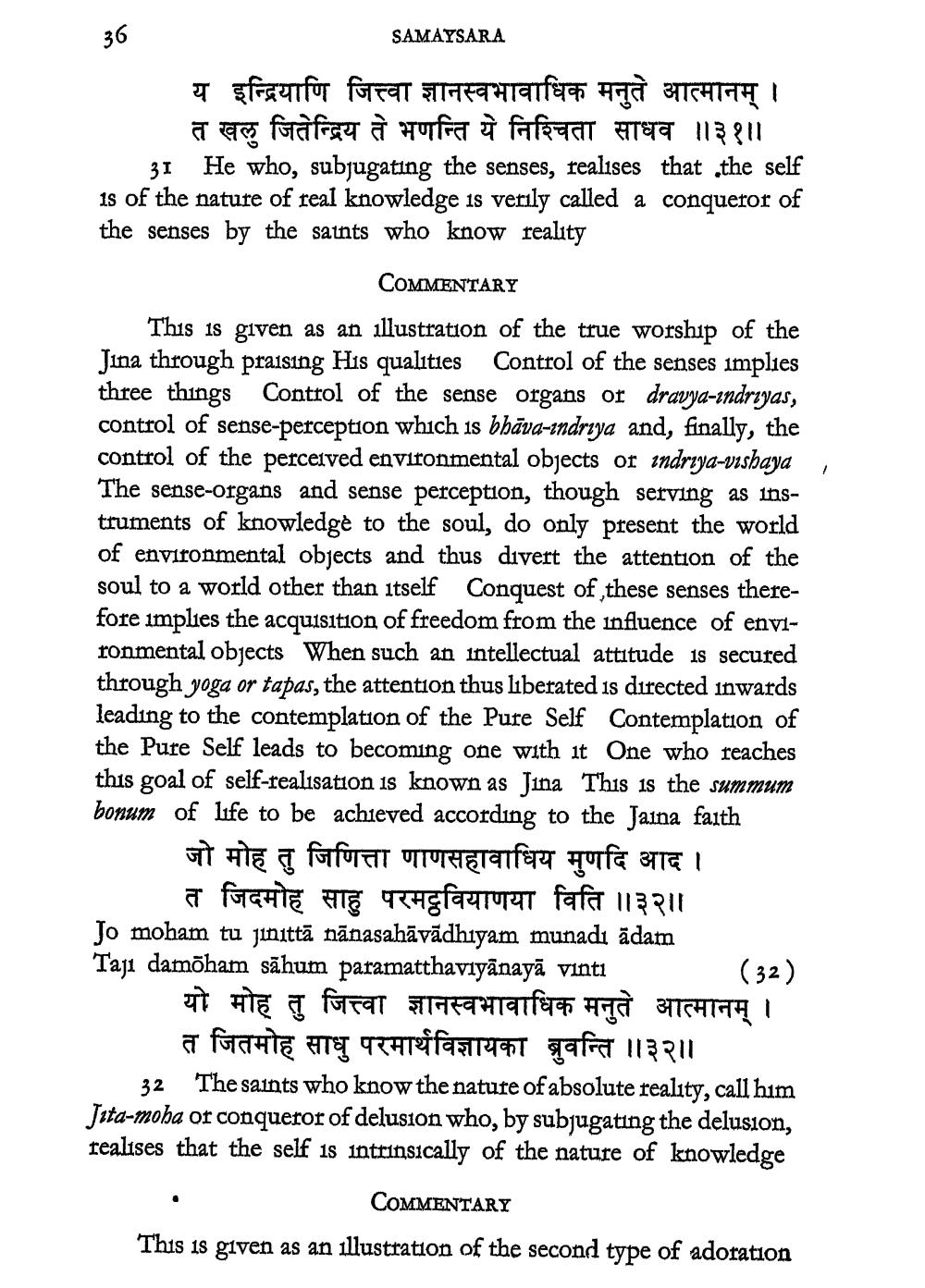________________
36
SAMAYSARA
य इन्द्रियाणि जित्त्वा ज्ञानस्वभावाधिक मनुते आत्मानम् ।
त खलु जितेन्द्रिय ते भणन्ति ये निश्चिता साधव ॥३१॥ 31 He who, subjugating the senses, realises that the self is of the nature of real knowledge is verily called a conqueror of the senses by the saints who know reality
,
COMMENTARY This is given as an illustration of the true worship of the Jina through praising His qualities Control of the senses implies three things Control of the sense organs or dravya-ındriyas, control of sense-perception which is bhāva-indriya and, finally, the control of the perceived environmental objects or indriya-vishaya The sense-organs and sense perception, though serving as instruments of knowledge to the soul, do only present the world of environmental objects and thus divert the attention of the soul to a world other than itself Conquest of these senses therefore implies the acquisition of freedom from the influence of environmental objects When such an intellectual attitude is secured through yoga or tapas, the attention thus liberated is directed inwards leading to the contemplation of the Pure Self Contemplation of the Pure Self leads to becoming one with it One who reaches this goal of self-realisation is known as Jina This is the summum bonum of life to be achieved according to the Jaina faith
जो मोह तु जिणित्ता णाणसहावाधिय मुणदि आद ।
त जिदमोह साह परमवियाणया विति ॥३२॥ Jo moham tu jinittā nānasahāvādhiyam munadı ādam Taji damāham sāhum paramatthaviyānayā vinti (32)
यो मोह तु जित्त्वा ज्ञानस्वभावाधिक मनुते आत्मानम् ।
त जितमोह साधु परमार्थविज्ञायका ब्रुवन्ति ॥३२॥ 32 The saints who know the nature of absolute reality, call him Jita-moha or conqueror of delusion who, by subjugating the delusion, realises that the self is intrinsically of the nature of knowledge
COMMENTARY This is given as an illustration of the second type of adoration




